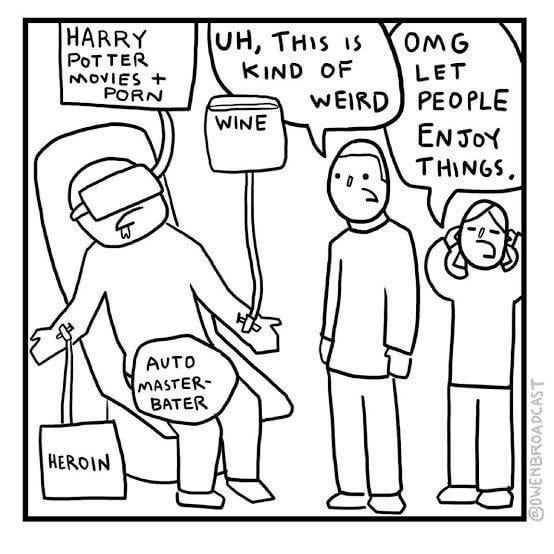Before I had a kid, the most satisfying moment of my life was when I stopped a man going to prison.
I was a very junior lawyer and had been thrown an absolute hot potato case. Down at the Waitākere District Court representing my own client, another junior lawyer friend phoned me in a flap: she had a client due to appear for sentencing in an hour and she wouldn’t make it, would I be able to do the pleas in mitigation? She wouldn’t take no for an answer. I got off the phone, my stomach sinking, and googled “pleas in mitigation”.
Then I met the client. I forget the exact charge, but he’d walked into someone’s back yard and sat in their car with the presumed intent to steal it. I flipped through his prior convictions, and they went on and on and on, for about seven pages: theft, theft, conversion of vehicle, theft, theft, theft. He’d been to prison about three times. My stomach sank even further. I was fucked, and so was he.
I began googling even more furiously, attempting to learn, in 20 minutes, how to ace the hearing. I pulled aside a senior duty lawyer and asked him some procedural basics: the man had a good story explaining his recent lapse and a letter of recommendation from an employer—how did I request leave to show that to the judge? It’s unbelievable how green I was, and unconscionable that this man’s fate was in my hands. (The barrister ultimately responsible has since been struck off, by the way.) But long story short, I absolutely nailed it. I stood up in court, with a knot in my stomach the size of a prison cell, and issued a measured and cogent argument for leniency, and the judge nodded and awarded a non-custodial sentence. A senior lawyer from the Public Defence Service turned around and nodded at me, visibly impressed. Afterwards, the client came up to me on the street and said, “Thanks for stopping me going to prison, miss.”
Again—until I had a kid, that was my proudest achievement. And how did it feel, from moment to moment? Like torture. I felt sick, incompetent, angry, dizzy, frazzled, shaky, ashamed, sick, sick, sick. And I think that line—Thanks for stopping me going to prison, miss—will still make my heart surge on my deathbed.
The singer Chappell Roan recently set the internet alight with some throwaway comments on parenting. “All of my friends who have kids are in hell,” the 27-year-old, herself childless, said. “I actually don't know anyone who's, like, happy and has children at this age. I literally have not met anyone who's happy, anyone who has light in their eyes, anyone who has slept.”
In the usual way, Roan has parted the take-seas like Moses: on one side, people arguing that parenting isn’t hell and is good, actually; on the other, people claiming Roan’s statement was fair and accurate.
I offer a modest rapprochement: parenting is hell, and it’s good.
This is one of the points the online right is correct about: as people like Alex Kaschuta and Mary Harrington often point out, we are not satisfied by lives of pleasure and ease. In our age of limbic capitalism, we can see this clearly: how does it feel to watch a steady stream of moderately entertaining TV on Netflix, your bodily appetites sated by Uber Eats and Pornhub, your social needs plugged by Instagram, your spiritual needs served by the Waking Up app? It feels like a bullet would be a gift.
No wonder people with fuck-you money don’t end up lolling around on deckchairs; they pursue lives of extreme physical discomfort, and literally starve.
You’ve read the studies, right, and seen the graph, showing that from hour to hour, parenting is basically misery until your children leave the nest? In my daughter’s first year, I was so sleep-deprived and miserable that I was dogged by worries that I would physically hurt her, which made me feel sick and guilty, like a shit mum, which pretty much all mums end up feeling like. I spent a full 12 months looking like the woman in the “You’re beautiful” meme, except with way gnarlier hemorrhoids.
But was there light in my eyes? Was there ever. In Mom Genes, Abigail Tucker argues that romantic infatuation—the feeling immortalised by centuries of sonnets and love songs, thousands of ships launched by a single face, etc—functions as a mere warmup for the love you feel for your baby. I know in my bones this is true.
I was going to say all parents know this is true, but the truth is, some parents experience their children as crushing disappointments. And I think that almost certainly has something to do how we set up our expectations of “happiness” today. Parenting is good, satisfying, and worthwhile, but it’s also a long march of boredom, intense stress, and clothes that smell like bile. It feels bad, probably most of the time. If you’re expecting the feeling Abigail Tucker describes 24/7, that’s a recipe for post-natal depression, or worse. You get it periodically, and that’s enough. That’s a truly good life.
To be clear, I think the good life is open to parents and non-parents alike. But the saddest way to live is in pursuit of constant, low-level pleasure—avoiding hardship and pain—out of some misguided idea that this is what “happiness” looks like. That’s how to lose the light from your eyes.







this is a really good Chappell Roan take! I'm sure what she says is accurate among her set, but you are 100% correct that kids – the vomit, the furies, the ever-present fears – are one of the only ways you're forced (not that you otherwise can't; but *forced*) to leave the mild comfort zone. And when the clouds break, that's the best stuff there is. Also: well done on keeping that man out of prison!!
So good! I was one of your early Twitter followers (lol) and was so excited to find your Substack. I have a 3.5 year old daughter and am even more thrilled to see your parenting takes!